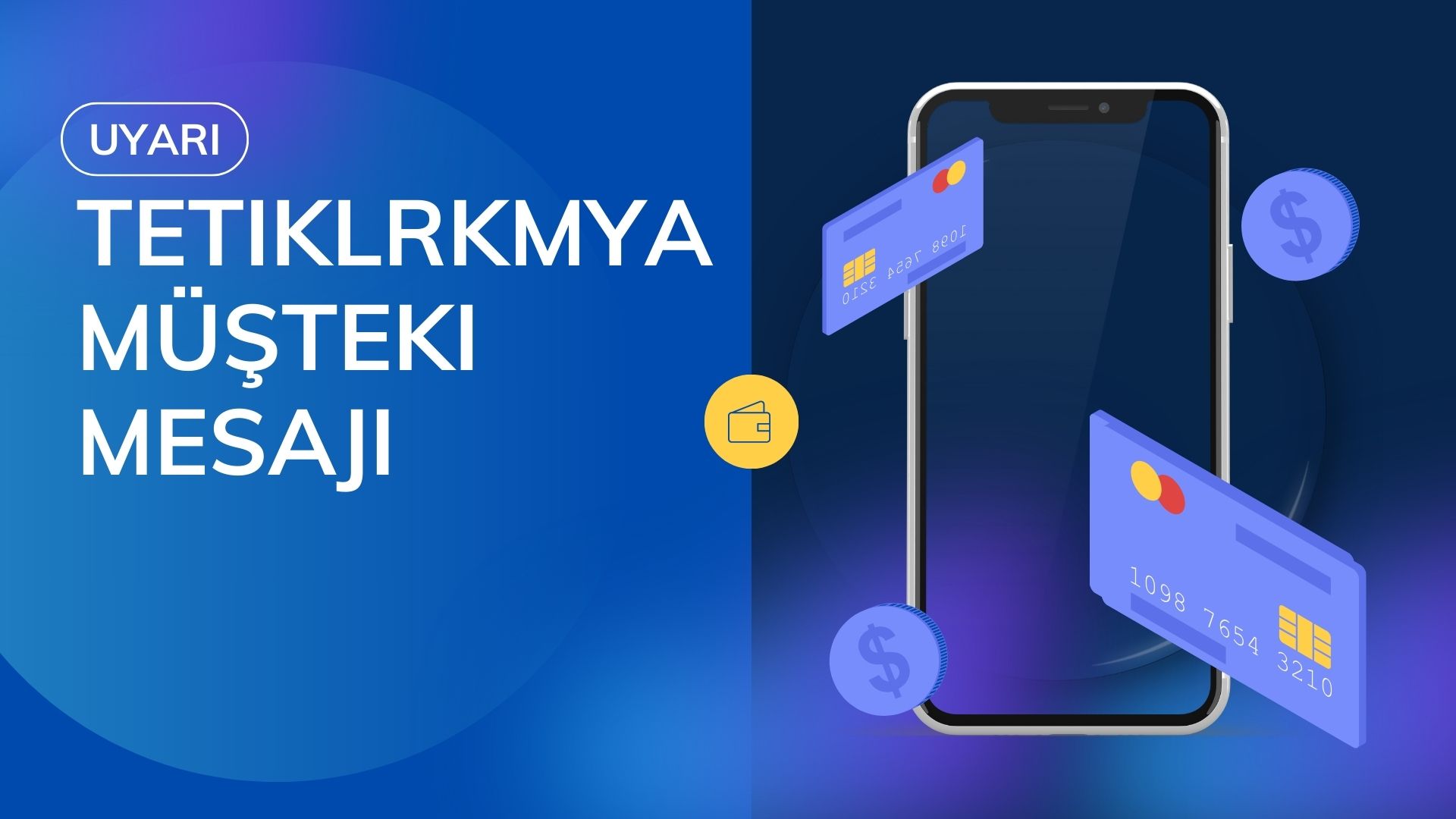What is a Trigger Response Message?

What is Triggerlrkmya Client Message? Son zamanlarda, “Tetiklrkmya Müşteki Mesajı” adı altında vatandaşları dolandırmaya yönelik SMS’ler dolaşmaktadır. These messages threaten legal action by referring to Article 227 of the Turkish Penal Code, saying that a “reconciliation” fee of 3850 TL or 36,000 TL compensation lawsuit will be filed and bank accounts will be blocked.
We would like to underline that these messages are definitely fraudulent. Article 227 of the Turkish Penal Code regulates the crime of “Unlawful Obtaining or Disclosure of Personal Data” and you must apply to the competent authorities in order to initiate any legal action regarding this crime.
Triggerlrkmya Client Message
It is important to be wary of such scam messages and never panic.
Here are some important points you should know about these messages:
- Sender number: These messages are usually sent from unknown numbers.
- Threatening language: Messages use threats of legal action and fear.
- Incorrect information Messages provide incorrect information about Article 227 of the Turkish Penal Code.
- Money demands: Scammers ask you to pay a “settlement” fee or compensation.
If you have received this kind of message:
- Never reply to the message.
- Do not click or click on any link.
- Never give out personal information.
- Report the situation by calling the Alo 156 Fraud Hotline.
- Contact the nearest police station to initiate legal action.
You can also take a look at these resources to learn about such scam messages:
- Turkish National Police Fraud Office: https://www.egm.gov.tr/bilgiteknolojilerivehaberlesme/iletisim-yoluyla-dolandiricilik
- Gendarmerie General Command Fraud Branch: https://www.jandarma.gov.tr/
- Consumer Rights Association: https://www.tuketicihaklari.org.tr/
Remember, scammers are always developing new methods. Therefore, it is very important to be aware and act cautiously.

How Do I Recognize Scammer Numbers?
Identifying scammer numbers is an important step in protecting yourself from scam attempts, which are common today. Here are some tips that can help you recognize scam numbers:
1. Incoming Calls from Unknown Numbers
- Suspicious Calls Beware of calls from numbers you do not recognize. Especially calls from unknown country codes are often made by scammers.
- Short Calls Scammers sometimes make short calls and wait for you to call back. When you call back, you will be redirected to a high-priced line and extra charges will be added to your bill.
2. Text Message and SMS Fraud
- Prize Messages: Messages such as “Congratulations, you’ve won a great prize!” are often fraudulent. Do not take such messages seriously and do not reply to them.
- Messages with Links: Do not click on messages with links from people you do not know. These links often lead to fake sites that try to steal your personal information.
3. Personal Information Requests
- Calls Requesting Personal Information: Calls that call you under the name of a bank or official institution and ask for your personal information may be fraudulent. Never share your information in such calls.
- Suspicious Credentials: Government agencies will never request personal information over the phone. If you receive such a request, end the call and contact the official number of the organization.
4. Searching for the number on the Internet
- Number Inquiry Sites: You can check if the number of an incoming call has been reported as fraudulent by searching for it online.
- Complaint Sites: Scam numbers are often listed on complaint sites. On these sites you can check whether the number is a scam or not.
5. Smartphone Apps
- Call Blocking Apps: Many smartphone apps detect and block fraudulent numbers. You can protect yourself by downloading these apps.
- Spam Filters: You can prevent fraudulent SMS from reaching you by enabling spam filters for messages.
6. Be Conscious
- Skeptical Approach Always be skeptical of calls and texts from unfamiliar numbers.
- Careful Behavior: Be careful when calling back unknown numbers and make sure the number is reliable.
Spotting scam numbers is important for your personal safety. The tips above can help protect you from fraud attempts.






